(from A Brief History of Dictatorships)
During political uprisings in South Africa after the assassination of HF Vewoerd, his successor, BJ Vorster sharpened the apartheid government’s control over the country with increased police presence, aided by the country’s militia, not unlike that seen during Hitler’s brutal repression of German Jews before the outbreak of the second World War.
Vorster’s brutality against ‘black’ South Africans had echo’s of Mussolini’s Black Shirts and his henchmen’s intimidatory tactics of interrogation were similar to those used by Franco’s military supporters and employees.
Fast forward to the present day, we see similarities in the way governments restore law and order. Such as in South Africa where most civil unrest is the result of non-delivery of housing and municipal services, and in Ferguson in the USA where protesters suspect that police killings of civilians are racist.
The unconstitutional detention of political prisoners without trial was reminiscent of the pogroms carried out by Franco, Mussolini, Hitler and even Chile’s Pinochet. It is also repeated by the American regime at Guantanamo Bay and the Zionist military against suspected terrorists deemed enemies of the state.
But it all pales into insignificance when viewing the horrors being carried out by Boko Haram in Nigeria, Al Shabaab in Kenya and surrounding nations and the Islamic State in no more than four autonomous regions in and around Iraq, Syria and Kurdistan.
South African prime minister BJ Vorster’s brutal, iron-fisted rule culminated in Soweto 1976 and the killing of Black Consciousness leader Steve Biko, lover of discredited South African politician, Dr Mamphela Ramphele. Biko’s murder was exposed by courageous South African journalists, notably the Rand Daily Mail’s Helen Zille, current leader of South Africa’s official opposition, the Democratic Alliance.
To date, the rabble-rousing of Julius Malema and his Economic Freedom Fighters has been quickly stifled by the South African Police Services, even within the chambers of the Gauteng province’s legislative chambers.
The SAPS killed over thirty protesting miners at Marikana during August, 2012. This national tragedy is now the subject of a lengthy commission of inquiry. One of Malema’s own commissars, Dali Mpofu, is leading the enquiries on behalf of the slain miners and their grieving survivors. He is representing them with costs. Not pro bono.
When Vorster was scandalously exposed and succeeded by PW Botha, the new state president of the Republic re-emphasised the dangers of communism to excuse increased militarization within and beyond South Africa’s borders, particularly in the derogatorily named black townships. While Cuba’s Fidel Castro resolutely supported Angola’s long-serving and corrupt president, Jose Eduardo dos Santos with a physical military presence in Angola, Botha’s military machine, one of the world’s strongest during the nineteen-eighties, was helped by the Republican regime of former Hollywood actor, Ronald Reagan.
Britain’s prime minister, Margaret Thatcher, had a sympathetic ear for PW Botha’s aggressive cause, strongly advocating against the imposition of economic sanctions against South Africa and famously branding its political saviour, Nelson Mandela, a “terrorist”.
Much to the disagreement of many South Africans who are understandably blind of the true facts of South African and world history, particularly in the Middle East today, Nelson Mandela and PW Botha had something in common. Indeed, during the precursors towards democratic rule in South African, the imprisoned Mandela had met the stubborn Botha on a few occasions and famously remarked that in spite of political and ideological differences and much to the consternation of his comrades, he remarked that Botha was a man of integrity and one with whom he could do business.
Mandela’s loathing of Botha’s successor, FW de Klerk, however, is well-known. What is less-known is his unease at entering into an unholy alliance with the South African Communist Party which continues to this day. Mandela did not at all agree with communist ideologies and its underlying motives towards the accession of political power.
While Julius Malema today calls for nationalisation across all sectors, Mandela was quick to revoke his own outspoken advocacy of state control of the country’s economy once he learned of its impracticalities.
While Mandela remained imprisoned, PW Botha ruled with impunity, imposing indefinite States of Emergency and delegating sweeping unconstitutional powers towards his security forces.
All of South Africa’s apartheid prime ministers and state presidents, including FW de Klerk, were members of a secret society named the Broederbond (the Brotherhood). It was the preserve of ‘white’ Afrikaners who established themselves as leaders and organisers in business, industry, government, politics and even the Church.
Former foreign affairs minister, Pik Botha, once remarked that the attendance of cell meetings of the Broederbond across the country were conditional on the swearing of an oath of secrecy.
Today’s political and business élite consist of card-carrying members of the African National Congress, the South African Communist Party and the Congress of South African Trade Unions. Their prominence in the corridors of political power and acquisition of financial wealth, running into the billions, is helped by a spurious piece of legislation passed by Parliament’s majority several years ago. Much like the exclusivity of the National Party’s secret offshoot, the Broad-based Black Economic Empowerment Act excludes the majority of South Africans.
It was former United States President Lyndon B Johnson who when speaking on the subject of controlling political enemies, famously remarked that he would much rather have his foes “pissing outside of the tent” rather than “pissing into it”.
One of the leading beneficiaries of BBBEE, Cyril Ramaphosa, expelled former ANC Youth League leader, Julius Malema, from the ANC a few years ago. Having already richly rewarded himself financially, the former trade union leader is now the Deputy State President of the Republic of South Africa.
And Malema? His bladder filled with Johnny Walker Blue Label and Chivas Regal, Julius Malema is wantonly pissing into the ANC’s political tent.
Next week: Hitler and Churchill.
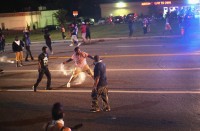
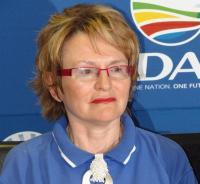
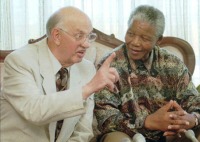
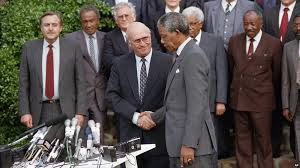
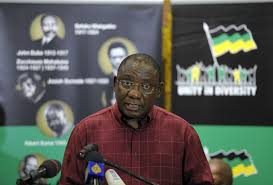
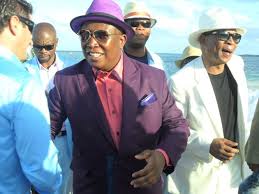
One thought on “BJ Vorster, PW Botha and the Broederbond”